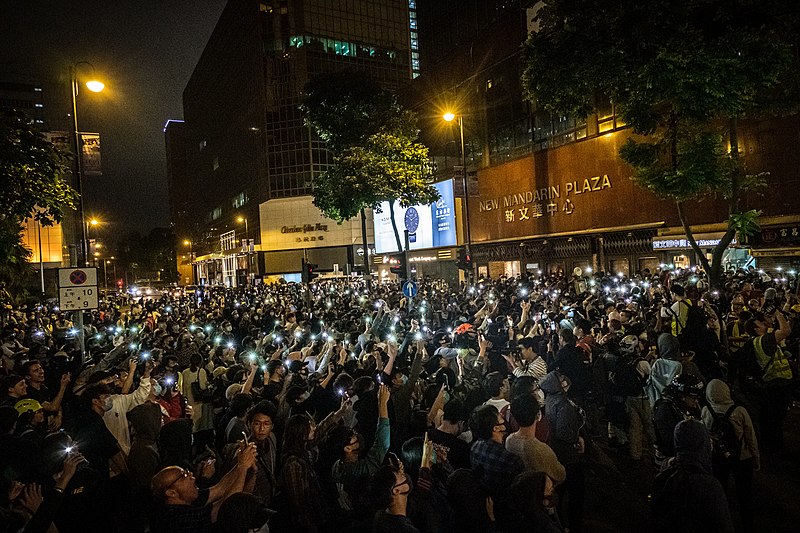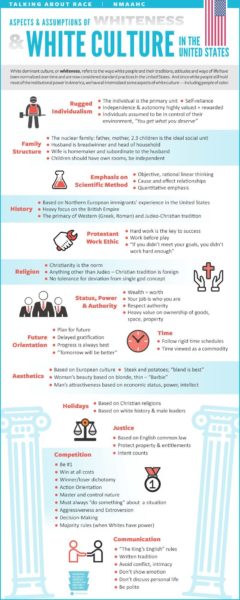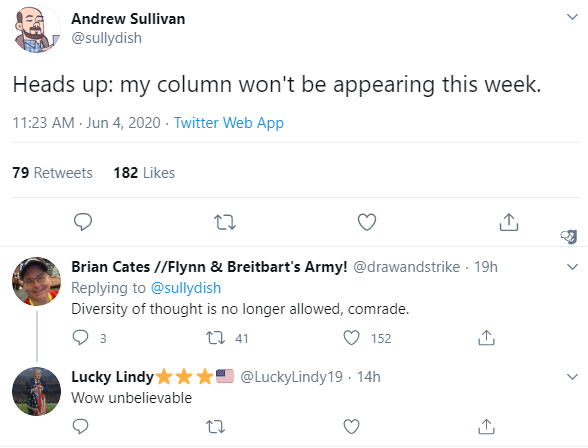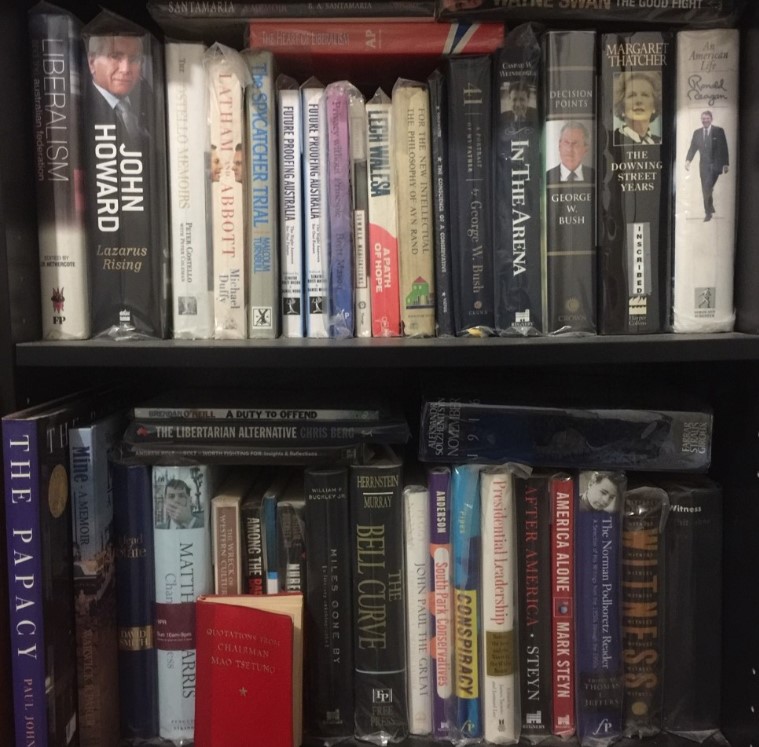Obviously it is not desirable that a Government department should have any power of censorship (except security censorship, which no one objects to in wartime) over books which are not officially sponsored. But the chief danger to freedom of thought and speech at this moment is not the direct interference of the M.O.I. [Ministry of Information] or any official body. If publishers and editors exert themselves to keep certain topics out of print, it is not because they are frightened of prosecution but because they are frightened of public opinion. In this country, intellectual cowardice is the worst enemy a writer or journalist has to face, and that fact does not seem to me to have had the discussion it deserves.
Any fair‐minded person with journalistic experience will admit that during this war official censorship has not been particularly irksome. We have not been subjected to the kind of totalitarian “co-ordination” that it might have been reasonable to expect. The press has some justified grievances, but on the whole the Government has behaved well and and has been surprisingly tolerant of minority opinions. The sinister fact about literary censorship in England is that it is largely voluntary. Unpopular ideas can be silenced, and inconvenient facts kept dark, without the need for any official ban. Anyone who has lived long in a foreign country will know of instances of sensational items of news — things which on their own merits would get the big headlines — being kept right out of the British press, not because the Government intervened but because of a general tacit agreement that “it wouldn’t do” to mention that particular fact. So far as the daily newspapers go, this is easy to understand. The British press is extremely centralized, and most of it is owned by wealthy men who have every motive to be dishonest on certain important topics. But the same kind of veiled censorship also operates in books and periodicals, as well as in plays, films and radio. At any given moment there is an orthodoxy, a body of ideas which it is assumed that all right thinking people will accept without question. It not exactly forbidden to say this, that or the other but it is “not done” to say it, just as in mid‐Victorian times it was “not done” to mention trousers in the presence of a lady. Anyone who challenges the prevailing orthodoxy finds himself silenced with surprising effectiveness. A genuinely unfashionable opinion is almost never given a fair hearing, either in the popular press or in the highbrow periodicals.
At this moment what is demanded by the prevailing orthodoxy is an uncritical admiration of Soviet Russia. Everyone knows this, nearly everyone acts on it. Any serious criticism of the Soviet regime, any disclosure of facts which the Soviet Government would prefer to keep hidden, is next door to unprintable. And this nation-wide conspiracy to flatter our ally takes place, curiously enough, against a background of genuine intellectual tolerance. For though you are not allowed to criticize the Soviet Government, at least you are reasonably free to criticize our own. Hardly anyone will print an attack on Stalin, but it is quite safe to attack Churchill, at any rate in books and periodicals. And throughout five years of war, during two or three of which we were fighting for national survival, countless books, pamphlets and articles advocating a compromise peace have been published without interference. More, they have been published without exciting much disapproval. So long as the prestige of the U.S.S.R. is not involved, the principle of free speech has been reasonably well upheld. There are other forbidden topics […] but the prevailing attitude toward the U.S.S.R is much the most serious symptom. It is, as it were, spontaneous, and is not due to the action of any pressure group.
The servility with which the greater part of the English intelligentsia have swallowed and repeated Russian propaganda from 1941 onward would be quite astounding if it were not that they have behaved similarly on several earlier occasions. On one controversial issue after another the Russian viewpoint has been accepted without examination and then publicized with complete disregard to historical truth or intellectual decency. To name only one instance, the B.B.C. celebrated the twenty-fifth anniversary of the Red Army without mentioning Trotsky. This was about as accurate as commemorating the battle of Trafalgar with out mentioning Nelson, but evoked no protest from the English intelligentsia. In the internal struggles in the various occupied countries, the British press has in almost all cases sided with the faction favored by the Russians and libeled the opposing faction, sometimes suppressing material evidence in order to do so. A particularly glaring case was that of Colonel Mihailovich, the Jugoslav Chetnik leader. The Russians, who had their own Jugoslav protégé in Marshal Tito, accused Mihailovich of collaborating with the Germans. This accusation was promptly taken up by the British press: Mihailovich’s supporters were given no chance of answering it, and facts contradicting it were kept out of print. In July, 1943, the Germans offered a reward of 100,000 gold crowns for the capture of Tito, and a similar reward for the capture of Mihailovich. The British press “splashed” the reward for Tito, but only one paper mentioned (in small print) the reward for Mihailovich; and the charges of collaborating with the Germans continued. Very similar things happened during the Spanish civil war. Then, too, the factions on the Republican side which the Russians were determined to crush were recklessly libeled in the English leftwing press, and any statement in their defense, even in letter form, was refused publication. At present, not only is serious criticism of the U.S.S.R. considered reprehensible, but even the fact of the existence of such criticism is kept secret in some cases. For example, shortly before his death Trotsky had written a biography of Stalin. One may assume that it was not an altogether unbiased book, but obviously it was saleable. An American publisher had arranged to issue it and the book was in print — I believe the review copies had been sent out — when the U.S.S.R. entered the war. The book was immediately withdrawn. Not word about this has ever appeared in the British press, though clearly the existence of such a book, and its suppression, was a news item worth a few paragraphs.
George Orwell “The Freedom of the Press”, 1945 (written as the introduction to Animal Farm, but not published in Orwell’s lifetime).
August 1, 2020
QotD: Voluntary self-censorship
July 22, 2020
How the left lost its sense of humour
Matt Taibbi outlines the way “the right” used to be the humourless scolds and omnipresent busybodies demanding the government trample the rights of people they didn’t like, then points out that the progressives have become exactly the people they used to poke fun at:
The old Republican right’s idea of “humor” was its usual diatribes against Bad People, only with puns thrown in (are you ready for “OxyClinton”?). As a result the Fox effort at countering the Daily Show, the 1/2 Hour News Hour — a string of agonizing “burns” on Bush-haters and Hillary — remains the worst-rated show in the history of television, according to Metacritic. The irony gap eventually spelled doom for that group of Republicans, as Trump drove a truck through it in 2016. However, it’s possible they just weren’t as committed to the concept as current counterparts.
Take the Smithsonian story. The museum became the latest institution to attempt to combat racism by pledging itself to “antiracism,” a quack sub-theology that in a self-clowning trick straight out of Catch-22 seeks to raise awareness about ignorant race stereotypes by reviving and amplifying them.
The National Museum of African American History and Culture created a graphic on “Aspects and Assumptions of White Culture” that declared the following white values: “the scientific method,” “rational, linear thinking,” “the nuclear family,” “children should have their own rooms,” “hard work is the key to success,” “be polite,” “written tradition,” and “self-reliance.” White food is “steak and potatoes; bland is best,” and in white justice, “intent counts.”
The astute observer will notice this graphic could equally have been written by white supremacist Richard Spencer or History of White People parodist Martin Mull. It seems impossible that no one at one of the country’s leading educational institutions noticed this messaging is ludicrously racist, not just to white people but to everyone (what is any person of color supposed to think when he or she reads that self-reliance, politeness, and “linear thinking” are white values?).
The exhibit was inspired by white corporate consultants with Education degrees like Judith Katz and White Fragility author Robin DiAngelo, who themselves echo the work of more consultants with Ed degrees like Glenn Singleton of Courageous Conversations. Per the New York Times, Courageous Conversations even teaches that “written communication over other forms” and “mechanical time” (i.e. clock time) are tools by which “whiteness undercuts Black kids.”
The notion that such bugbears as as time, data, and the written word are racist has caught fire across the United States in the last few weeks, igniting calls for an end to virtually every form of quantitative evaluation in hiring and admissions, including many that were designed specifically to combat racism. Few tears will be shed for the SAT and ACT exams, even though they were once infamous for causing Harvard to be overpopulated with high-scoring “undesirables” like Jews and Catholics, forcing the school to add letters of reference and personal essays to help restore the WASP balance.
The outcry against the tests as “longstanding forces of institutional racism” by the National Association of Basketball Coaches is particularly hilarious, given that the real problem most of those coaches are combating is the minimal fake academic entry requirement imposed by the NCAA to help maintain a crooked billion-dollar business scheme based on free (and largely Black) labor. The tests have been tweaked repeatedly over the years to be more minority-friendly and are one of the few tools that gave brilliant but underprivileged kids a way to blow past the sea of rich suburbanites who feel oppressed by them … But, fine, let’s stipulate, as Neon Bodeaux put it, that “them tests are culturally biased.” What to make of the campaign to end blind auditions for musical positions, which the New York Philharmonic began holding in the early seventies in response to complaints of discrimination?
Before blind auditions, women made up less than 6 percent of orchestras; today they’re half of the New York Philharmonic. But because the change did not achieve similar results with Black and Hispanic musicians, the blind audition must now be “altered to take into fuller account artists’ backgrounds and experiences.” This completes a decades-long circle where the left/liberal project went from working feverishly to expunge racial stereotypes in an effort to level the playing field, to denouncing itself for ever having done so.
This would be less absurd if the effort were not being led in an extraordinary number of cases by extravagantly-paid white consultants like DiAngelo and Howard Ross, a “social justice advocate” whose company billed the federal government $5 million since 2006 to teach basically the same course on “whiteness” to agencies like NASA, the Treasury, the FDIC, and others.
It’s unsurprising that in the mouths of such people, the definitions of “whiteness” sound suspiciously like lazy suburban white stereotypes about Black America, only in reverse. They read like a peer-reviewed version of Bill de Blasio’s infamous joke about “CP Time.”
July 10, 2020
Freedom of speech – a tool to be discarded when your opponents try to use it
Arthur Chrenkoff discusses the recent uproar among progressives over an open letter calling for respect for free speech … when the “wrong kind of people” started signing on:
So how did it come to this on a meta-level – how did the left, which for a long time championed ideas like freedom of speech, come to be the new censors and book burners?
The answer is short and simple: power.
Thanks to its Marxist heritage, the left is all about power. Who has it, who doesn’t (Lenin’s famous ur-question “who whom?”), how to get it. Power and power relationship is the ultimate touchstone and lodestar, the prism through everything else is seen and judged. Everything, including morality – what’s right, what’s wrong – flows from the position in this binary system (and with power it is a zero-sum game: you either have it all or you have none).
Turkish Islamist president Recep Erdogan has once famously said “Democracy is like a streetcar. When you come to your stop, you get off.” The stop – the end – is power; democracy is the mean to the end.
So it is with the left and freedom. The left was pro-freedom when it was on the way up. Being pro-freedom helped them achieve their objectives. Freedom of speech, for example, was important because it guaranteed them the ability to spread their ideas.
Now the left has the power, if not in all respects and in equal measure, certainly as far as culture is concerned, where it enjoys near hegemony. Being on top it doesn’t need freedom of speech anymore. Quite the contrary: freedom of speech now enables its critics to challenge their ideas and their position. Debate is a waste of time and effort, much better and more efficient is to silence any dissenting voices.
It’s never about principle – it’s about the side (yours) and power (yours to gain and keep).
July 5, 2020
Andrew Sullivan – “There is no doubt at this point that communist China is a genocidal state”
In his latest column, Andrew Sullivan discusses China’s latest outrages against groups within China:

Protest against the Chinese government in Hong Kong, 25 November 2019.
Photo by Studio Incendo via Wikimedia Commons
Genocide is not measured simply by the number of human beings in a demographic group who have been killed. Such numbers vary. The pogroms in Europe of the 14th century killed far, far fewer Jews than died in the 20th-century Holocaust, but it would be crazy not to see a very similar eliminationist impulse. It’s the genocidal intent that defines a genocide. The United States Holocaust Memorial Museum defines it as “the intent to destroy, in whole or in part, a national, ethnic, racial, or religious group.” Their definition includes the following five categories:
- Killing members of the group.
- Causing serious bodily or mental harm to members of the group.
- Deliberately inflicting on the group conditions of life calculated to bring about its physical destruction in whole or in part.
- Imposing measures intended to prevent births within the group.
- Forcibly transferring children of the group to another group.
There is no doubt at this point that communist China is a genocidal state. The regime is determined to coerce, kill, reeducate, and segregate its Uighur Muslim population, and to pursue eugenicist policies to winnow their ability to sustain themselves. The Associated Press just published an exhaustive and chilling account of the extent of the campaign, which was reportedly supported and seconded by the president of the United States when speaking with President-for-life Xi.
We already know about the reeducation camps. We found out this week the grisly detail that China may even have been exporting human-hair products taken from Uighur political prisoners in those camps. What the AP helps us better understand is how the regime is forcibly sterilizing Uighur women inside and outside the camps, attempting to control the Uighur population by assaulting basic reproductive freedom. Uighur families with multiple children are now in danger of being sent to camps for the crime of bringing Uighur kids into the world: “Time in a camp — what the government calls ‘education and training’ — for parents with too many children is written policy in at least three counties, notices found by [scholar Adrian] Zenz confirmed. In 2017, the Xinjiang government also tripled the already hefty fines for violating family planning laws for even the poorest residents — to at least three times the annual disposable income of the county.”
And the campaign of terror is working: “Birth rates in the mostly Uighur regions of Hotan and Kashgar plunged by more than 60% from 2015 to 2018, the latest year available in government statistics. Across the Xinjiang region, birth rates continue to plummet, falling nearly 24% last year alone — compared to just 4.2% nationwide, statistics show.” In the Uighur city of Hotan, over a third of all married women of childbearing age were sterilized in 2019 alone. And this is taking place in the context of a new campaign to increase the fertility and offspring of the majority Han Chinese. This is pure racial social engineering.
This genocidal dictatorship also took this past week to stomp all over what’s left of freedom in Hong Kong. Just before the anniversary of the end of British rule in Hong Kong, Beijing has introduced a new security law that all but eviscerates any freedom for dissent in the former British colony. It renders a variety of offenses that involve pro-democracy activism and criticism of the regime punishable by up to a lifetime in jail. The law is deliberately vague, was passed with no input from Hong Kong’s own government before its details were revealed, and criminalizes offenses such as “secession, subversion against the central Chinese government, terrorism, and colluding with foreign forces.”
The effect has been immediate: Key members of a leading dissident group, Demosisto, resigned, and the party has been disbanded. Throughout Hong Kong, businesses that had posted messages of support for the pro-democracy forces are swiftly removing them. People are deleting their social-media accounts for fear of imprisonment. A BBC reporter notes the immediate impact: “One contact of mine, a lawyer and human-rights activist, sent me a message shortly after the law was passed. ‘Please delete everything on this chat,’ he wrote.”
July 1, 2020
June 26, 2020
QotD: “The freedom to tell lies is one of the most basic freedoms of all”
It was clear to me from the questions that followed that the children had very little notion of what freedom actually was or what it entailed. For example, could it be right to allow climate-deniers to spread their falsehood and lies? The question begs many questions, of course: it assumes that it is beyond reasonable doubt that the globe is warming, that the warming is caused by man’s activities, that the warming is a wholly harmful phenomenon and that there is only one possible solution to it. I am insufficiently knowledgeable to pronounce on these questions and have heard eminent people whom I respect and whose integrity I have no grounds for doubting argue for very different conclusions.
But even if there were answers to these questions that were a good deal more certainly true than any answers that we possess today, it still would not be right to silence doubters and deniers: for error and even malice are the price of freedom. In the realm of intellectual freedom it is not truth that sets you free, but error, or rather the permissibility of error. And the freedom to tell lies is one of the most basic freedoms of all. There can be no freedom without it.
Well, the audience was only young and perhaps this was strong meat for their immature digestions rendered sensitive by a constant diet of modern pieties, as the young these days are said to be more likely to develop allergies because of the sterility and cleanliness of modern homes and ways of life (what they need is more dirt and early contact with potential pathogens). But soon they would be going off to university, where it was likely that they would encounter an even narrower and powerfully self-reinforcing view of the world. The pressure to conform would add to the natural self-righteousness of youth, which is often mistaken for idealism, and their impulse to censor in the name of their own irreproachable virtue would be strengthened and entrenched.
The long-term prospects for freedom of speech, then, are not altogether rosy. Those who value it are less vehement in their defence of it than are the self-righteous in their assault on it.
Anthony Daniels, “Free Speech’s Emboldened Enemies”, Quadrant, 2018-03-10.
June 17, 2020
June 8, 2020
Andrew Sullivan can’t write about the riots or he’ll lose his job
I’d wondered why he hadn’t directly addressed the biggest news item in the United States over the last week:
What has happened to New York media? Just as the New York Times was experiencing its own Inner Mongolia Moment over the now notorious Sen. Tom Cotton “Send in the Troops” op-ed, the Maoists at New York magazine were going after their best columnist, Andrew Sullivan.
Sullivan revealed on Twitter yesterday that his column wouldn’t be appearing. The reason? His editors are not allowing him to write about the riots.
Presumably Sullivan’s editors are frightened that he might make the radically bourgeois point that looting and violence are wrong.
Cockburn understands that Sullivan is not just forbidden from writing for the New York magazine about the riots; his contract means he cannot write on the topic for another publication. He is therefore legally unable to write anything about the protests without losing his job — at the magazine that, in 1970, published Radical Chic, Tom Wolfe’s brilliant and controversial excoriation of progressive piety. It’s the bonfire of the liberals!
May 27, 2020
QotD: “Hate speech” is the new secular heresy
The cynical category of “hate speech” is openly used to police the parameters of acceptable thought and to punish those who are considered to hold heretical views that the guardians of moral correctness oppose. So not only are critics of Islam denounced as “hate speakers” — so are feminists who question the cult of transgenderism, Christians who disapprove of same-sex marriage, right-wing people who want stricter immigration controls, etc. These are all entirely legitimate political or moral opinions. The branding of them as “hate speech” — and therefore undeserving of the protections of freedom of speech — is really a way of calling these views heresy. And of course heretics must be cast out. Feminists, Catholics, critics of Islam — hound them off campus, get them off the airwaves, report them to the police for their crimes of hatred. This is an intolerant assault on heresy of the kind that has appeared many times throughout history. Those who say “It isn’t censorship” protest far too much. Deep down they know it is. Deep down they know they are to the 2020s what Joe McCarthy was to the 1950s.
Brendan O’Neill, “Why we must win the fight for free speech”, Spiked, 2020-02-26.
May 6, 2020
April 29, 2020
“The war on ultraviolet radiation because it might help Trump is an educational moment”
Arthur Chrenkoff on the sudden decision that the World Health Organization is the ultimate arbiter of what we’re allowed to say on social media platforms like Twitter and YouTube:
There is of course no evidence that the video represents any disinformation. It relates to legitimate scientific research by a medical company conducted in association with a respected hospital to develop a novel treatment of possibly crucial importance in the current conditions and into the future. The only problem with the video is that is indirectly supports Trump’s flight of fancy speculation about using light and chemicals to “disinfect” the body. Ergo, according to a NYT journalist it represents a problem and YouTube agrees. YouTube now has a standing policy of removing COVID information that goes against the World Health Organisation’s guidelines. Putting aside the question of the WHO’s credibility in the wake of the pandemic, we are not talking here about some guy in a tinfoil hat talking about 5G towers spreading the virus; this is a video relating to ongoing, respectable scientific research. Will it work? Probably not. But perhaps neither will any of the 150 or so COVID-19 vaccines being currently developed around the world. We won’t know until we know. But in the meantime, scientific news should not be censored, period.
[…]
Goldsmith and Woods are correct in pointing out not only the greater role that governments have been playing in regulating speech but more importantly how much of that effort has been embraced and driven by the big tech — and by the private individuals enabled and encouraged by the big tech — what I have previously called the “democratised censorship”. The difference is that people like Goldsmith and Woods think that’s a good thing.
The dirty little secret is that a great number of leftists, progressives and even centrist technocrats and activists look at China, with its authoritarian government, social credit score system, ubiquitous surveillance, and the ability to “get things done” and done quickly and supposedly efficiently (in China, bullet trains run on time, I hear), and pine for such a system to be applied in their own countries — as long as, of course, they are the ones in power and decide what is right, important and valuable. The left’s objections are rarely against authoritarianism and its means and methods per se, just with the possibility that someone else — like Trump — is the one behind the wheel, implementing their, not the left’s, agenda.
The war on ultraviolet radiation because it might help Trump is an educational moment. One could say, first they came for crazy conspiracy theorists and I said nothing because I’m not an anti-vaxxer or anti-5G activist — and so on. The problem with censorship is that it keeps creeping up on everyone else. And those who do the censoring — who decide what the ignorant masses should and shouldn’t be allowed to read — are not some detached and impartial spiritual beings but people with political agendas. People who think that ideas and beliefs of one half of the society are harmful and offensive. People who will censor news that doesn’t fit the agenda and support the narrative.
And then they came for ultraviolet radiation… You have been warned.
March 30, 2020
QotD: Free speech is the safety valve we must not eliminate
[W]hen you’re a peddler of Utopia, you can’t admit you’re wrong or that your methods are crazy. After all, your cult of Marx (a college-professor friend recently shocked his students by pointing out Marx is a 19th century western idea — born of the mechanical age and the idea you can make everything just so — and that imposing this interpretation on non-Western systems is colonialist) promises eventual paradise and world domination. You can’t be wrong. It would mean your whole life has been in vain, and everything you’ve been taught is a lie.
The system might have moved the downtrodden from those “exploited” by the industrial revolution, to “minorities” “third world people” and people with interesting colorations — mostly because the “exploited” workers kept rising up in the world and spitting in the eye of Marx, the ungrateful bastages — but it’s totally still true and the way of the future. Even if it requires conceptualizing a future where no one works and everything is free, since they’ve now tossed the “workers” out of their ideal society. (Again, ungrateful bastages who don’t know how “good” the intellectuals are for them.) But it is totally the future!
So all those people who say that it’s still spinach and to hell with it? They’re just trying to destroy the train of happiness leading to the station of utopia.
Which means they must be silenced. If they’re just silenced, then the system will work fine, and everyone will be happy and joyful.
So the latest attack is on free speech. Because free speech can be hurty and say things the left doesn’t want to hear. Bad bad free speech must be stopped.
They already have laws against “hate speech” or “harassment”, which according to a comment here is “saying something I don’t like more than once” in most of the world.
The US is holding fast in our unreasonable devotion to the first amendment which irks the left as much as our devotion to the second. Don’t we understand that bad speech hurts people? And leads to bad think?
In any institution they control, from companies code of conduct to deplatforming people on twitter, to Google strangling hits to dissenting blogs, etc, they are already silencing that nasty, evil feedback.
Because if only they don’t hear the whistles of rising steam, the engine will never explode.
Cotton stuffed in their ears, they keep feeding more coal to the engine of public opinion and stopping up the steam vents.
The end of this is what happened to Ceausescu and his repulsive wife: “Beloved leader of the morning, pile of cooling, bullet riddled meat in the afternoon.”
But they don’t see it. They’re convinced if they just stop the feedback, the machine will work fine.
And they’re going to take all of us into the explosion. Mind you, in the end we win, they lose, but it’s going to get very rough there for a while.
Unfortunately when dealing with true believers, there’s nothing you can do but let them utterly prove their system wrong, before sane people can build again.
Sarah Hoyt, “Breaking the Gears”, According to Hoyt, 2018-01-03.
March 18, 2020
A classic “dirty book” of the late Middle Ages
I’m not well read in the classics, being much more of a history reader myself, so I didn’t know anything about The Decameron. Arthur Chrenkoff provides a helpful thumbnail of the book:

“A Tale from the Decameron” by John William Waterhouse (1916).
Image from the Lady Lever Art Gallery via Wikimedia Commons.
Giovanni Boccaccio had written The Decameron in the aftermath of the Black Death pandemic of 1348, which carried away somewhere around one third of the European population. The book is set in a monastery, where seven young women and three young men, the Millennials of the day, self-quarantine themselves for ten days to avoid the plague and while away their days (there was no internet in those days, you see) telling each other stories, ten each day, all based around a chosen theme, such as love that ends happily or the tricks that women play on men. Many of the stories are a bit dirty, which is why The Decameron was put on the Catholic Church’s index of prohibited books; more interestingly, it was also banned in Australia until 1973, on pretty similar grounds.
March 14, 2020
“The people who write such things are thinking with their epidermis and genitalia, which is to say they’re not thinking at all”
In Quillette, Matt Johnson remembers the great anti-identitarian writer and speaker, Christopher Hitchens:

Christopher Hitchens speaking at The Amaz!ng Meeting held at the Riviera Hotel, Las Vegas, Nevada on 20 January 2007.
Photo detail by ensceptico via Wikimedia Commons.
Hitchens thought fearlessly. As Martin Amis put it, he liked “the battle, the argument, the smell of cordite.” This is why he told the publisher of God is Not Great: How Religion Poisons Everything to organize a book tour that ran through the pulpits of the American South instead of remaining confined to the coasts. It’s why he relished every opportunity to lambaste Bill and Hillary Clinton in front of liberal audiences. It’s why he went after Mother Teresa and Princess Diana. He was an inveterate iconoclast — if there was a bloated reputation to puncture or a cherished dogma to deflate, he saw it as a duty and a pleasure to do so.
It’s no surprise that this oppositional inclination, coupled with blistering rhetorical ability, made Hitchens a deadly debater. After his death in December 2011, countless tributes and articles about Hitchens emphasized what a force he was in the studio and on the debate stage — his erudition and wit, his fluency, his seemingly superhuman memory. Hitchens is unforgettable for all these reasons, but people don’t miss him because he could turn a phrase or win an argument on CNN — they miss him because he thought for himself and refused to apologize for it. He didn’t want to write and speak as the representative of a community: “My own opinion is enough for me,” he told the audience at a debate on free speech in 2007, “and I claim the right to have it defended against any consensus, any majority.”
“Unpopular ideas can be silenced, and inconvenient facts kept dark, without the need for any official ban,” Orwell wrote in his original introduction to Animal Farm (which was, ironically, suppressed). He continued: “Anyone who challenges the prevailing orthodoxy finds himself silenced with surprising effectiveness.” While there was far more official censorship in Orwell’s time, we’re living through an era of pervasive self-censorship, and as Packer explains, this type of silencing is “more insidious than the state-imposed kind, because it’s a surer way of killing the impulse to think, which requires an unfettered mind.”
[…]
Hitchens detested tribal and parochial feelings of any kind, which is why he was dismayed when he witnessed the emergence of identity as a catalyst for political mobilization in the late 1960s and early 1970s. In his memoir, Hitch-22, Hitchens attacked radicals who thought it was “enough to be a member of a sex or gender, or epidermal subdivision, or even erotic ‘preference,’ to qualify as a revolutionary.” When Hitchens first heard the expression “the personal is political,” he knew “as one does from the utterance of any sinister bullshit that it was — cliché is arguably forgivable here — very bad news.” As he put it in a 2008 article:
People who think with their epidermis or their genitalia or their clan are the problem to begin with. One does not banish this specter by invoking it. If I would not vote against someone on the grounds of ‘race’ or ‘gender’ alone, then by the exact same token I would not cast a vote in his or her favor for the identical reason.
It’s easy to imagine what Hitchens would have thought about a recent New York Times headline that declared “The Next President Should Not Be a Man” or a prominent writer and activist who announced that she “will not support white male candidates in the Dem primary.” The people who write such things are thinking with their epidermis and genitalia, which is to say they’re not thinking at all. You don’t have to bother defending candidates’ principles and positions when gender and race are the only relevant variables.
February 27, 2020
Toby Young’s Free Speech Union (FSU)
Brendan O’Neill explains why Toby Young’s FSU is so important right now:
The beautiful thing about the mad reaction to Toby Young’s Free Speech Union (FSU) is that it proves why the union is so necessary. No sooner had Young unveiled his censorship-busting union than the illiberal liberals were out in force to mock it and ridicule it and to insist that, actually, there is no free-speech crisis in the UK. It’s a right-wing myth, they claim. There is no widespread censorship. People aren’t being shipped off to gulags for expressing an opinion. Apparently, the free-speech “grift” – God, I hate the word “grift” – is just a bunch of pale, male and stale blokes pissed off that they can no longer say the N-word or talk openly about women’s boobs. Freedom of speech is not under threat, the Young-bashers claim, and anyone who says it is is probably just an Islamophobe, transphobe or some other breed of phobe itching to spout bile with “no consequences”.
This rank denialism, this blinkered insistence that free speech is not in danger in 21st-century Britain, is exactly why we need the FSU and as broad a discussion as possible about the importance of the liberty to express oneself. Because the fact that so many inhabitants of the chattering-class bubble can’t even see that free speech is dying right now confirms how naturalised and uncontroversial the new censorship has become. They don’t even see it as censorship. They see it as perfectly normal, and good, in fact, that certain views cannot be expressed in public life or on social media. That’s how cavalier the new war on heretical opinion has become. At least in the past, from Torquemada to the McCarthyites, authoritarians were honest about being censors. Today’s self-elected moral guardians of correct opinion are so hubristic, so taken with their own mortal rectitude, that they don’t even see themselves as enemies of freedom, but rather as decent, unimpeachable maintainers of a natural intellectual order.
Things have come to such a pass that these people will literally seek to censor you in one breath and then express alarm at being called censors in the next breath. Hence the Guardian could publish a piece last week claiming that the idea that there is a culture of censorship in British universities is a “right-wing myth” while simultaneously defending censorship on campus. In an act of extraordinary moral contortionism, Evan Smith mocked the “idea that there is a free-speech crisis at British universities” and then, without missing a beat, he defended the policy of No Platform and the creation of safe spaces because “the university cannot be a place where racism and fascism – as well as sexism, homophobia and transphobia – are allowed to be expressed”. The Orwellianism is staggering. “There is no censorship on campus. Except the censorship I approve of. Which is not really censorship.” That is what is being said here. The intellectual dishonesty is almost impressive.
This Orwellian denialism of the existence of censorship by people who actually support and enact censorship cuts to the heart of the free-speech crisis in the UK. The reason the illiberal liberals and woke McCarthyites and Twittermobs don’t consider themselves to be censors – even as they gleefully agitate for the censorship of feminists, secularists worried about Islamist extremism, and right-wing people opposed to mass immigration – is because they have convinced themselves that certain forms of speech are not free speech. That certain beliefs should not be afforded the liberty of expression. You hear it in their telling, baleful mantra that “Hate speech is not free speech”. And if “hate speech” is not free speech, but rather some kind of toxin, a pox on public life, then crushing it is not censorship. It is more like an act of public health: cleansing the public realm of diseased thoughts that are liable to harm certain groups. These people see themselves not as censors, but as public-health activists delousing the community of germs spread by evil men and women.












